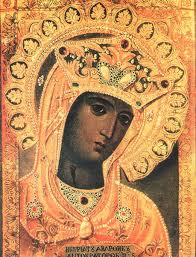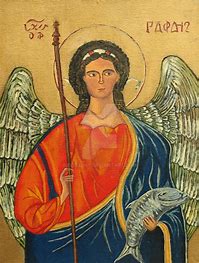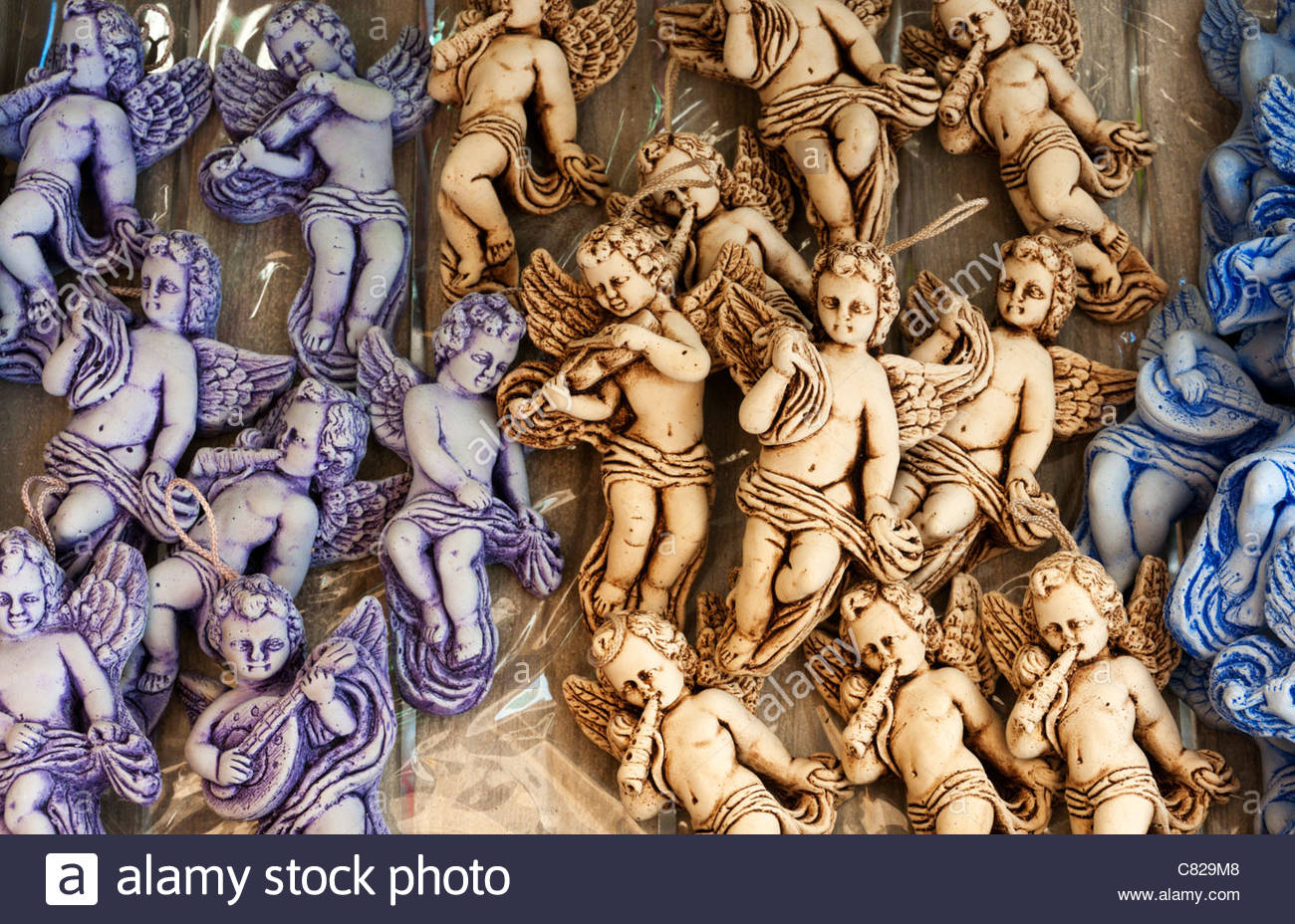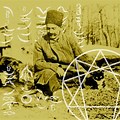Those in public life should act with integrity, Archbishop of York suggests











Those in public life should act with integrity, Archbishop of York suggests
he Archbishop of York has asked the people of Britain to consider what kind of the country it should be as he suggested those in public life need to “live to the highest standards” and act with integrity.
In his Easter sermon at York Minster, Stephen Cottrell asked whether the UK wants “to be known for the robustness of our democracy” where those who lead the country can be trusted.
Referencing the growing cost-of-living crisis faced by households and the “depressing and distressing” plan to send migrants to Rwanda, Mr Cottrell said: “As we emerge from Covid the great question I find myself asking is the same as the one asked by my predecessor, William Temple, at the height of the Second World War, who wrote this ‘when this is done, what sort of nation do we want to be?’.
Provided by The Independent The Most Reverend Stephen Cottrell, during his enthronement as the 98th Archbishop of York in 2020 (Danny Lawson/PA) (PA Archive)
“So this is my question this Easter day. Do I want to be part of a nation that is hopeful, enterprising, that cares for those in need, that supports those who are in poverty because they can’t afford the heating or food for the table and offer genuine help?
“Do we want to be a nation that seeks to build and make peace, not merely enjoy it, that builds an international consensus about what it means to live alongside our neighbour?
“Do we want to continue to be known as a country that opened proper, legitimate pathways for all who flee violence, conflict and oppression, not just those from Ukraine, but also those fleeing other conflicts and the effect of climate change?
“Do we want to be known for the robustness of our democracy, where those in public life live to the highest standards, and where we can trust those who lead us to behave with integrity and honour?”
It comes after Prime Minister Boris Johnson, his wife Carrie, and Chancellor Rishi Sunak were fined for their involvement in the partygate saga, where Downing Street gatherings were held during lockdown restrictions.
Mr Sunak, meanwhile, has been under further pressure over his wife’s tax arrangements and the couple previously holding US green cards.
rovided by The Independent A police officer outside 10 Downing Street (Yui Mok/PA) (PA Wire)
Meanwhile, Labour branded Mr Johnson’s involvement in partygate “indefensible” after fresh allegations emerged.
The Sunday Times reported new claims that Mr Johnson was not only present at a leaving do for his former press chief Lee Cain on November 13 2020, but that he led the celebrations.
A source suggested to the newspaper this had started as the press office having drinks to finish off the week, but turned into a party once the Prime Minister arrived, poured drinks and made a speech.
The newspaper said a No 10 source did not deny the characterisation of the gathering, but denied Mr Johnson was the instigator.
The report also said the Prime Minister’s official photographer had captured photographs of Mr Johnson holding a beer at the June 2020 birthday bash for which he, his wife, and Mr Sunak were fined.
Mr Johnson is understood to have been present for at least six of the 12 events being investigated by the Metropolitan Police for breaking Covid rules, and is braced for more fines potentially to come.
It is understood he is likely to make a statement to the Commons on Tuesday.
Earlier, crossbench peer and historian Peter Hennessey told BBC Radio 4’s Broadcasting House programme that the country was in “the most severe constitutional crisis involving a prime minister that I can remember, and it goes to the heart of the character of the Prime Minister”.
Reading from his diary entry from Tuesday, when Mr Johnson apologised after receiving his partygate fine, Lord Hennessey said the PM had “shredded the ministerial code” and was “unworthy” of the Queen, “her Parliament, her people and her kingdom”.
Still reading from the entry, he added: “I cannot remember a day where I’ve been more fearful for the wellbeing of the constitution.”
However, Cabinet minister Jacob Rees-Mogg played down the “constitutional significance” of the ministerial code.
Speaking on BBC Radio 4’s The World This Weekend programme, he said: “The ministerial code is not a legislative part of our constitution, it is a set of guidelines produced by the Prime Minister.”
I think that when you hear what happened on the party for which he has been fined, many people would think that they were in accordance with the rules
He said that when Mr Johnson told MPs rules had been followed in No 10 during Covid restrictions: “I think that the Prime Minister spoke to Parliament in good faith”.
He added: “I think that when you hear what happened on the party for which he has been fined, many people would think that they were in accordance with the rules, when they were meeting people they were with every day, who happened to wish them a happy birthday, because that was the day it was.
“I think that was a perfectly rational thing to believe. Now the police have decided otherwise and the police have an authority. But he wasn’t thinking something irrational or unreasonable, that that was within the rules.”
Downing Street declined to comment when approached by the PA news agency and has repeatedly said it would not comment until the police investigation concludes.
Labour’s deputy leader Angela Rayner said: “While the British public was making huge sacrifices, Boris Johnson was breaking the law.
“If the latest reports are true, it would mean that not only did the Prime Minister attend parties, but he had a hand in instigating at least one of them. He has deliberately misled the British people at every turn.
“The Prime Minister has demeaned his office. The British people deserve better. While Labour has a plan for tackling the cost-of-living crisis, Tory MPs are too busy defending the indefensible actions of Boris Johnson.”
Royal Maundy Service explained as Queen misses it for first time in 52 years









Royal Maundy Service explained as Queen misses it for first time in 52 years
Her Majesty the Queen has pulled out of her traditional Easter Sunday service just days before it’s due to take place.
Instead, the rest of the Royal Family will attend the annual gathering at St. George’s Chapel in Windsor without the Queen.
The sudden news comes after the palace announced that Prince Charles and Camilla would step in for today’s Maundy Service.
It’s the first time since 1970 that a member of the Royal Family (the Queen Mother at that time, as the Queen was in New Zealand) has stood in for the monarch.
The tradition takes place on the Thursday before Easter Sunday each year, complete with some very strange practises!
From odour-busting bouquets to purses full of ‘Maundy money’, here’s what really happens during the Maundy Service.
Tim Graham Photo Library via Getty Images Her Majesty has regretfully pulled out for the first time in 52 years
Ancient history
According to the Royal Mint Museum, the Maundy Service has been a royal custom for centuries and could date back as early as the 1200s.
The tradition sees members of the royal family distribute money and gifts, and mark Jesus Christ’s ‘simple act of humility’ by washing the feet of the poor.
While it’s pretty unlikely that our present royals do any foot washing during the service, gifts are still a big part of the ceremony.
UK Press via Getty Images The service dates back centuries
Thursday, the Queen distributes special Maundy money to pensioners in a service which commemorates Jesus washing the feet of the Apostles at the Last Supper.”
That explains the lack of foot washing, then.
Each year, the monarch hands out the Maundy coins to a specific number of men and women depending on her current age.
These people are nominated by their local dioceses for contributions to their local church and community.
Getty Images Charles and Camilla stepped in to represent the Queen
So, at this service, Charles will give them to 96 men and 96 women - as the Queen will turn 96 just a few days later on April 21.
Each recipient is given two little purses - one red and one white.
In the white purse, they’ll find uniquely minted Maundy money (silver 10p and 3p pieces) adding up to 96p.
And in the red pouch, there’s a £5 coin and a 50p coin marking the Queen’s Platinum Jubilee.
What an exciting gift!
Tim Graham Photo Library via Getty Images Her Majesty rarely misses the Easter tradition
Nosegay bouquets
We can’t forget the nosegays.
Keeping to tradition, the Queen - or rather Prince Charles and Camilla, this year - is offered nosegays.
They’re sweet-smelling bouquets of flowers which, in years past, were used to overpower any unpleasant odours during the ceremony.
Postal service
Our monarch (and her people) missed out on the Maundy Service for two years due to the Covid pandemic.
But would-be attendees didn’t miss out. She sent the Maundy money by post along with a letter to each recipient thanking them for their community work (which earned them the nomination to be given the coins).
Reference: OK: Kirsten Jones
Jerusalem clashes: More than 150 Palestinians wounded as Israeli police enter Temple Mount








Jerusalem clashes: More than 150 Palestinians wounded as Israeli police enter Temple Mount
Clashes broke out on Friday morning after Israeli police entered the Temple Mount holy site in Jerusalem, with medics saying at least 152 Palestinians have been wounded.
AFP via Getty Images; Israeli security forces gather after Palestinian demonstrators and Israeli police clashed at Jerusalem’s Al-Aqsa mosque
Police entered the compound in large numbers shortly before dawn, said the administrators of the site – also known as Al-Aqsa – as thousands of worshippers gathered at the mosque for early morning prayers two weeks into the holy month of Ramadan.
In a statement, police said that around two hours earlier, dozens of young people began to march in the area, carrying flags of both Hamas as well as Palestine.
They also threw stones and fireworks and began piling up rocks and other objects to prepare for further clashes, the authorities said.
“Police were forced to enter the grounds to disperse the crowd and remove the stones and rocks, in order to prevent further violence,” the Israeli foreign ministry said in a statement.
Police said that the group threw stones during morning prayers, but that they only went in to disperse the group after prayers ended. The group then pelted stones at the Western Wall, which is located below the Temple Mount compound, prompting officers to enter the site, according to police.
Videos of the clashes being shared online appeared to show worshippers barricading themselves inside the Al-Aqsa mosque itself amid what appeared to be clouds of tear gas. Other footage showed Palestinians hurling rocks and police firing tear gas and stun grenades.
The Palestinian Red Crescent emergency service said it evacuated 152 wounded people to hospitals. The Islamic endowment which manages the site said one of its guards was shot in the eye with a rubber bullet.
Hours after the violence, the police said that the violence had been ended and “hundreds” had been arrested.
“We call on the worshipers to maintain order and observe the prayers in an orderly manner. The Israel Police will not allow rioters to disrupt the prayers and disrupt public order,” they said in a statement.
Prime minister Naftali Bennett held a meeting with police commissioner Kobi Shabtai and public security minister Omer Bar-Lev at a Border Police base in Jerusalem.
Later in a statement on Twitter he said: “[We are] working to provide security for Israeli citizens.”
The incident also drew condemnation from Palestinian National Authority president Mahmoud Abbas.
“The storming of Al-Aqsa Mosque and the entry of the occupation forces… is a dangerous development and sacrilege, and it is tantamount to declaring war on our Palestinian people,” said Nabil Abu Rudeineh, the president’s spokesperson.
The incident on Friday is the latest in a growing wave of violence that has erupted during the holy month of Ramadan, which coincides this year with major Jewish and Christian holidays.
Last year protests and clashes in Jerusalem during Ramadan boiled over into an 11-day war between Israel and Gaza.
In recent weeks tensions have been simmering after a series of attacks by Arab assailants killed 14 people inside Israel, prompting a wave of arrests and military operations in West Bank.
On Monday, Israeli forces said they had shot and killed a Palestinian man near the city of Bethlehem in the West Bank, reported the Associated Press.
Three Palestinians have been killed between Sunday and Monday which includes an unarmed woman who was shot and killed at a military checkpoint near Bethlehem.
Security has been heightened both in Israel as well as in the West Bank.
On Thursday Hamas called for an escalation against Israel and urged “hundreds of thousands” to attend Friday prayers in Jerusalem.
“We are declaring a general mobilisation in all places where our people are located. We are calling on the masses to come out in the hundreds of thousands to protect our nation and our mosque,” it said.
In a statement on Friday Hamas condemned the violence and said that Israel would have to bear the consequences.
“Our people in Jerusalem are not alone in the battle for Al-Aqsa. The whole Palestinian people and its noble resistance and its vital power are with them,” said Hamas spokesperson Fawzi Barhum.
Israel’s police said that security forces were on high alert and security had been beefed up at train stations, bus stops and hotels.
The Palestinian authorities said that they are cooperating with Israel to prevent a repeat of last year’s violence.
“If there is an escalation tomorrow and there are casualties, we may get to Operation Guardian of the Walls round two,” a senior security official was quoted as saying to Channel 12.
Historians are questioning if Jesus ever existed at all








Historians are questioning if Jesus ever existed at all
Whatever you think about him being the Son of God, the fact that Jesus existed as a historical figure has rarely been disputed.
After all, he is referenced across Christian, Jewish and Roman texts. Josephus' Antiquities of the Jews, written around AD 93–94, mentions the biblical Jesus in books 18 and 20. Meanwhile the Roman historian Tacitus, in his Annals, written around AD 116, referred both to 'Christus' and his execution by Pontius Pilate.
However, historians and bloggers are now increasingly questioning whether the man called Jesus actually existed at all. He may be no more a historical figure than Hercules or Oedipus.
Today, several books explore the subject from a fresh angle, including Zealot by Reza Aslan, Nailed: Ten Christian Myths That Show Jesus Never Existed at All by David Fitzgerald, and How Jesus Became God by Bart Ehrman.
Historians point out the lack of reliable historical sources. Most of the accounts of Jesus of course come from Christian sources – and even these are largely third party narratives written years after his death.
In the Bible, there is no mention at all of Jesus’ life between the ages of 12 and 30 – a pretty glaring omission for a man who only lived to be 33.
A further problem is that few of the biblical accounts have a real name attached to them – rather an apostle who “signs off” the manuscript.
Where non-Christian sources exist, even these are problematic.
Fitzgerald argued that for centuries all serious scholars of Christianity were Christians themselves, and so even secular accounts rely heavily on the religious texts that did the groundwork. They therefore cannot be considered independent sources.
Historian Richard Carrier wrote that even references to Jesus in the work of Josephus were additions done by Christian scribes. He points out that one particular passage, the execution of Jesus under Pilate, was obviously lifted from the Gospel of Luke.
Carrier believes that the character of Christ may have derived from earlier semi-divine beings from Near East mythology. These myths would develop over time into the gospels, he argues.
Of course, there may well have been a Jewish preacher called Yeshua ben Yosef, who inspired a great many people with his teachings. Most historians believe a real person existed and became mythicized. But even of this we cannot be certain.
Articles-Latest
- Koran burning conviction sparks fury as blasphemy law 'returns to UK'
- Robert Francis Prevost - Pope Leo XIV
- Pope Francis' death follows recent health challenges. Here's what we know about how he died.
- Easter April 2025 - international Celebrations
- The Rule of the twelve psalms -Worthy is the Lamb
- Religion in Africa Before Christianity and Islam
- 6 The Origin of Yahweh
- Dumo Di Milano
- What Did the Crow Tribe Believe In: Discover The Beliefs!
- 7 Reasons Historic Christianity Rejects the Book of Enoch
- 8 Breathtaking Mountain Monasteries Around the World
- Ethiopian Bible is oldest and most complete on earth
- Muhammad Muhammad was a prophet and founder of Islam.
- World Day of the Poor – SVP Christmas Campaign 2024
- Pope Francis to open 5 sacred portals on Christmas Eve — for a ritual that’s never been done before
- The 144,000 in Revelation
- Over 73 dead bodies 'used for meditation', 600 crocs in a pond, found in two Thai temples
- Occultism: Western Occult Tradition
- What is a Mudra
- Blood Sacrifices: Ancient Rituals of Life and Death
Articles-Most Read
- Home
- Let There Be Light
- Plants that feel and Speak
- The Singing Forest
- The Singing Forest-2
- Introduction
- Meditation
- Using Essential Oils for Spiritual Connection
- Heaven Scent
- Plants that Feel and Speak-2
- Purification
- Making the Spiritual Connection
- Anointing
- Essential Oils: The unseen Energies
- The Sanctity of Plants
- The Aroma Of Worship-Foreward
- The Aroma Of Worship - Introduction
- Methods Of Use
- Spiritual Blending
- Handling and Storage













